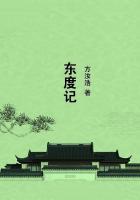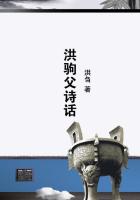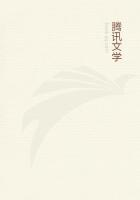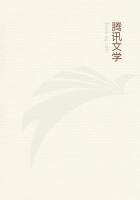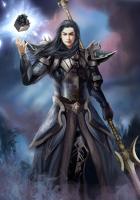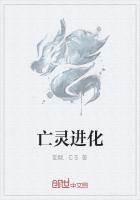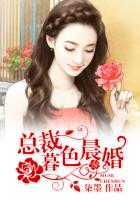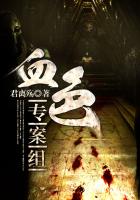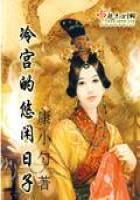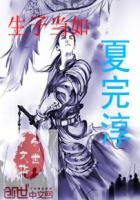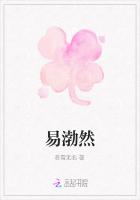My acquaintance with Stephen Crane was brought about by Mr.
Pawling, partner in the publishing firm of Mr. William Heinemann.
One day Mr. Pawling said to me: "Stephen Crane has arrived in England. I asked him if there was anybody he wanted to meet and he mentioned two names. One of them was yours." I had then just been reading, like the rest of the world, Crane's RED BADGE OF COURAGE.
The subject of that story was war, from the point of view of an individual soldier's emotions. That individual (he remains nameless throughout) was interesting enough in himself, but on turning over the pages of that little book which had for the moment secured such a noisy recognition I had been even more interested in the personality of the writer. The picture of a simple and untried youth becoming through the needs of his country part of a great fighting machine was presented with an earnestness of purpose, a sense of tragic issues, and an imaginative force of expression which struck me as quite uncommon and altogether worthy of admiration.
Apparently Stephen Crane had received a favourable impression from the reading of the NIGGER OF THE NARCISSUS, a book of mine which had also been published lately. I was truly pleased to hear this.
On my next visit to town we met at a lunch. I saw a young man of medium stature and slender build, with very steady, penetrating blue eyes, the eyes of a being who not only sees visions but can brood over them to some purpose.
He had indeed a wonderful power of vision, which he applied to the things of this earth and of our mortal humanity with a penetrating force that seemed to reach, within life's appearances and forms, the very spirit of life's truth. His ignorance of the world at large--he had seen very little of it--did not stand in the way of his imaginative grasp of facts, events, and picturesque men.
His manner was very quiet, his personality at first sight interesting, and he talked slowly with an intonation which on some people, mainly Americans, had, I believe, a jarring effect. But not on me. Whatever he said had a personal note, and he expressed himself with a graphic simplicity which was extremely engaging. He knew little of literature, either of his own country or of any other, but he was himself a wonderful artist in words whenever he took a pen into his hand. Then his gift came out--and it was seen then to be much more than mere felicity of language. His impressionism of phrase went really deeper than the surface. In his writing he was very sure of his effects. I don't think he was ever in doubt about what he could do. Yet it often seemed to me that he was but half aware of the exceptional quality of his achievement.
This achievement was curtailed by his early death. It was a great loss to his friends, but perhaps not so much to literature. Ithink that he had given his measure fully in the few books he had the time to write. Let me not be misunderstood: the loss was great, but it was the loss of the delight his art could give, not the loss of any further possible revelation. As to himself, who can say how much he gained or lost by quitting so early this world of the living, which he knew how to set before us in the terms of his own artistic vision? Perhaps he did not lose a great deal.
The recognition he was accorded was rather languid and given him grudgingly. The worthiest welcome he secured for his tales in this country was from Mr. W. Henley in the NEW REVIEW and later, towards the end of his life, from the late Mr. William Blackwood in his magazine. For the rest I must say that during his sojourn in England he had the misfortune to be, as the French say, MALENTOURE. He was beset by people who understood not the quality of his genius and were antagonistic to the deeper fineness of his nature. Some of them have died since, but dead or alive they are not worth speaking about now. I don't think he had any illusions about them himself: yet there was a strain of good-nature and perhaps of weakness in his character which prevented him from shaking himself free from their worthless and patronising attentions, which in those days caused me much secret irritation whenever I stayed with him in either of his English homes. My wife and I like best to remember him riding to meet us at the gate of the Park at Brede. Born master of his sincere impressions, he was also a born horseman. He never appeared so happy or so much to advantage as on the back of a horse. He had formed the project of teaching my eldest boy to ride, and meantime, when the child was about two years old, presented him with his first dog.
I saw Stephen Crane a few days after his arrival in London. I saw him for the last time on his last day in England. It was in Dover, in a big hotel, in a bedroom with a large window looking on to the sea. He had been very ill and Mrs. Crane was taking him to some place in Germany, but one glance at that wasted face was enough to tell me that it was the most forlorn of all hopes. The last words he breathed out to me were: "I am tired. Give my love to your wife and child." When I stopped at the door for another look I saw that he had turned his head on the pillow and was staring wistfully out of the window at the sails of a cutter yacht that glided slowly across the frame, like a dim shadow against the grey sky.
Those who have read his little tale, "Horses," and the story, "The Open Boat," in the volume of that name, know with what fine understanding he loved horses and the sea. And his passage on this earth was like that of a horseman riding swiftly in the dawn of a day fated to be short and without sunshine.

